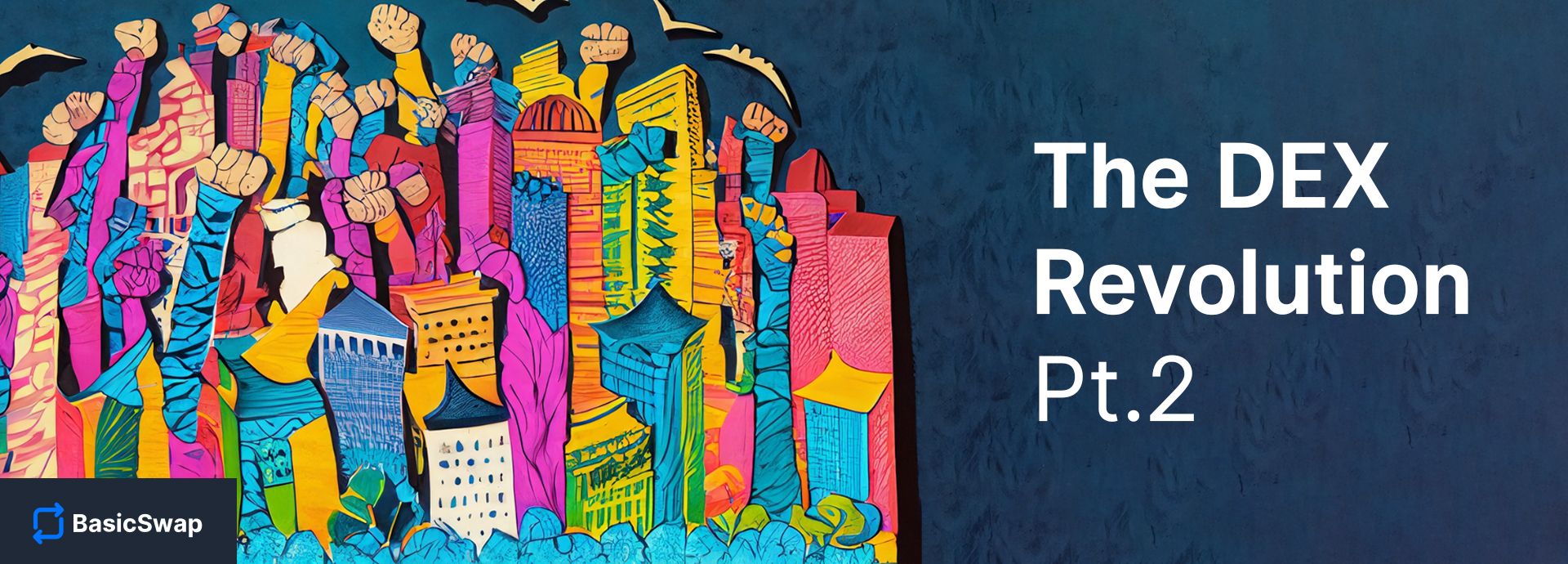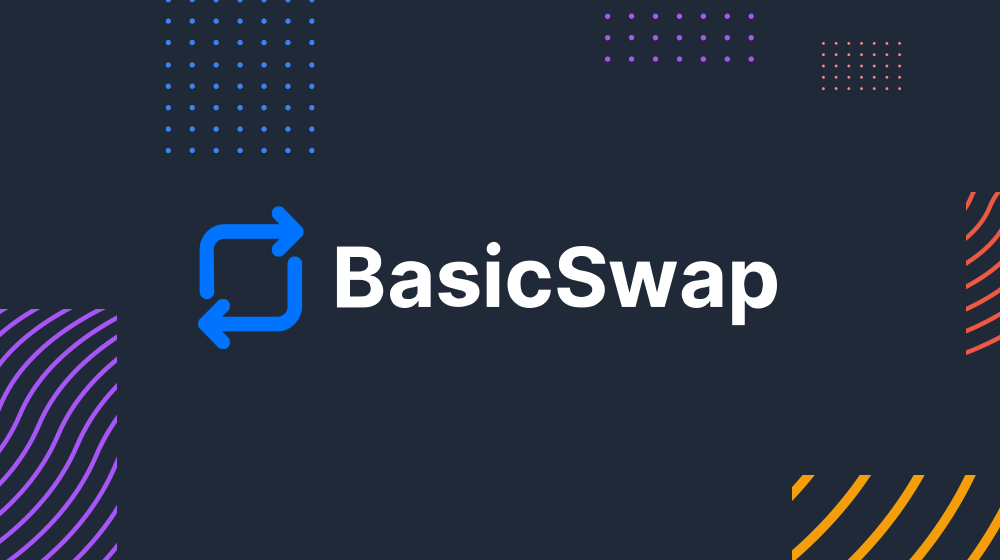
One thing that all privacy-centric communities and projects can agree on is the pressing need to build crypto solutions without central points of failure in order to bring the industry back to its roots and core ethos — namely, privacy and decentralization.
As it stands, the increasingly centralized and corporate infrastructure of crypto not only renders it more vulnerable to attacks, but it also gives government entities such as the SEC an incredibly powerful vector of control. To that end, it can be stated that atomic swaps represent the most decentralized and potentially most private way to exchange cryptocurrencies.
In the previous installment of this series, we discussed the history and development of atomic swap technologies, and the technical peculiarities and challenges of integrating them within a comprehensive DEX framework like BasicSwap DEX. Similar challenges are also present in bringing the BasicSwap protocol towards web accessibility, which we will explore in this article.
A Foundation for Private and Accessible DEX Environments

Those familiar with the early beta of the BasicSwap protocol understand that, while the technology is incredibly powerful and allows for probably the easiest XMR-BTC or Part(ANON)-BTC decentralized swaps available anywhere, it is at the cost of a relatively involved process. For example, unless you wish to swap a coin pair which blockchains you have already downloaded, the time necessary to get a new blockchain up to speed can be impractical for many users. Furthermore, simply accessing or updating the BasicSwap application requires much more time and attention than accessing a website would, which can be a key decision factor for many.
Thankfully, accessibility and onboarding improvements — notably a more straightforward and less complicated install process — are on the horizon, and will no doubt help less technically savvy but particularly privacy-concerned users to achieve the swaps they want directly on the BasicSwap platform. To that end, it is important to remember that the BasicSwap desktop application will always be a direct and uncompromising mirror to the BasicSwap protocol itself, and as such, will likely always require users to connect directly with chains, whether at the local level or through light services or nodes. This is the nature of atomic swaps, and the price users have to pay for free, entirely decentralized cross-chain atomic swaps with no third parties involved at any point.
In addition to the powerful decentralized swap machine that the BasicSwap application already is, and despite all upcoming improvements, an important feature is that the base protocol remains wide open to the inclusion of additional access gateways and integrations — namely, in the case of our current development focus, a web-based portal to the decentralized HTLC and Adaptor Sig swaps available on the BSX network.
The goal of such a gateway into the protocol is two-fold: on one hand, a plug-and-play type of web accessibility for effective cross-chain atomic swaps, which addresses some of the limitations that the application itself poses; on the other, a continued commitment to the privacy and decentralized resilience that characterizes BasicSwap and the Particl project as a whole.
Our Vision for BasicSwap's Access Gateways
To honor this commitment to privacy and resilience, integrating the BasicSwap protocol into a comprehensive web-based DEX framework hinges on a few things.
First of all is our commitment to make as little compromise as possible with regards to decentralization. The resilience and lack of third parties are some of the most attractive aspects of current atomic swap technologies, and we must keep that in mind for users that wish to benefit from BasicSwap directly from the convenience of a simple, easy-to-use website. To that end, general transparency, such as the easy and independent verification of addresses, smart-contracts, and on-chain processes by the user, and the immutable and peer-to-peer nature of the SMSG network, go a long way.
A second important consideration to achieve the goal of a thriving web-based BasicSwap access gateway is liquidity providers. Our vision is to enable web users to perform swaps, not only from regular users on the main BasicSwap order book, but also from liquidity providers potentially using their own private order books, which also live on the BasicSwap DEX protocol. To that end, investing development and resources into liquidity tools, initiatives, and incentives will be of great benefit to any DEX integration and will be instrumental in creating a fluid, reliable and incredibly resilient web-based DEX.
Thirdly, continuing our commitment to modular software architecture will ensure the exceptional resilience and scalability of even a web-based atomic swap platform via the future integration of additional messaging layers to support the SMSG network (1, 2) in the event that a defective or inadequate module fails to live up to the high expectations of BasicSwap DEX. This design philosophy also makes the platform more scalable, both at the gateway level and at the protocol level.
Developing the Economy of Tomorrow
Although the BasicSwap protocol itself is still in beta and that many of the necessary building blocks towards a smooth, user-friendly atomic swap web DEX are still in the works, behind-the-scenes development of BasicSwap is going splendidly, and a working beta of such a revolutionary web-based exchange platform is well in progress. Be sure to stay tuned to our twitter to stay up to date with our weekly Friday development reports!
Addressing the peculiarities of a web-based BasicSwap gateway also brings us closer to its integration into the Particl Marketplace, which will allow for seamless swaps between other digital currencies and the $PART settlement coin. This aims to bring deCommerce to unprecedented levels of accessibility and resilience, even allowing users to compound the privacy benefits of multiple cryptos and swapping protocols — a formidable building block towards a common, truly decentralized financial system open to all.
If you would like to deepen your understanding of atomic swaps and their history, make sure to give these articles a read!
- Atomic Swap Style Showdown
- The DEX Revolution Pt. 1
- The DEX Revolution Pt. 3
- Bidirectional Monero and PART (Anon) Atomic Swaps
The Open-Source Revolution
We're on a mission to create a private, independent, and pro-liberty digital economy that is fair and open to all. Learn more about what we do at any of the following links.
Be a part of the movement and join us in the fight for our freedoms by meeting the community and spreading the word far and wide!
Discord Telegram Element / Matrix
Learn more about Particl with these in-depth resources.
Website BasicSwap DEX Academy Wiki
Follow the link below to get a list of all other useful Particl-related links you may find helpful.
